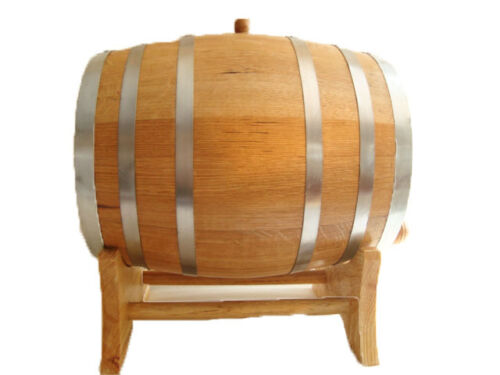zachattack
Well-Known Member
- Joined
- Mar 6, 2012
- Messages
- 2,808
- Reaction score
- 323
Hey everyone,
I did a 3 gallon batch of cider last year, I just finished the last bottle yesterday. It was good initially, but after 8-10 months of aging it became incredible. So this year I'm doubling my production and making 6 gallons! This is only my second cider attempt.
I have 6 gallons of unpasteurized local cider, I added some white sugar to boost the SG and have it fermenting at around 60 degrees with Nottingham. I wanted to experiment with oaking the cider this time around, so I bought 3 ounces of medium toast Hungarian cubes.
I've never used oak before, but it seems that most people steep the cubes in liquor (usually bourbon) to sanitize before they add it. Another option is to boil/steam the cubes for a few minutes, then toss them in. Does it really matter which method I choose? I plan on oaking for a while (a few months), and I do have some domestic apple brandy I could soak them in. The brandy is pretty tasty and I think I'd have to use a good amount to cover the cubes, though I bet soaking it in a ziplock bag is probably the best way to minimize the volume. I know it's not really a "waste" of the brandy, but is there any big advantage to soaking them in booze (other than the extra kick It'll add to the cider)?
Thanks!
I did a 3 gallon batch of cider last year, I just finished the last bottle yesterday. It was good initially, but after 8-10 months of aging it became incredible. So this year I'm doubling my production and making 6 gallons! This is only my second cider attempt.
I have 6 gallons of unpasteurized local cider, I added some white sugar to boost the SG and have it fermenting at around 60 degrees with Nottingham. I wanted to experiment with oaking the cider this time around, so I bought 3 ounces of medium toast Hungarian cubes.
I've never used oak before, but it seems that most people steep the cubes in liquor (usually bourbon) to sanitize before they add it. Another option is to boil/steam the cubes for a few minutes, then toss them in. Does it really matter which method I choose? I plan on oaking for a while (a few months), and I do have some domestic apple brandy I could soak them in. The brandy is pretty tasty and I think I'd have to use a good amount to cover the cubes, though I bet soaking it in a ziplock bag is probably the best way to minimize the volume. I know it's not really a "waste" of the brandy, but is there any big advantage to soaking them in booze (other than the extra kick It'll add to the cider)?
Thanks!





